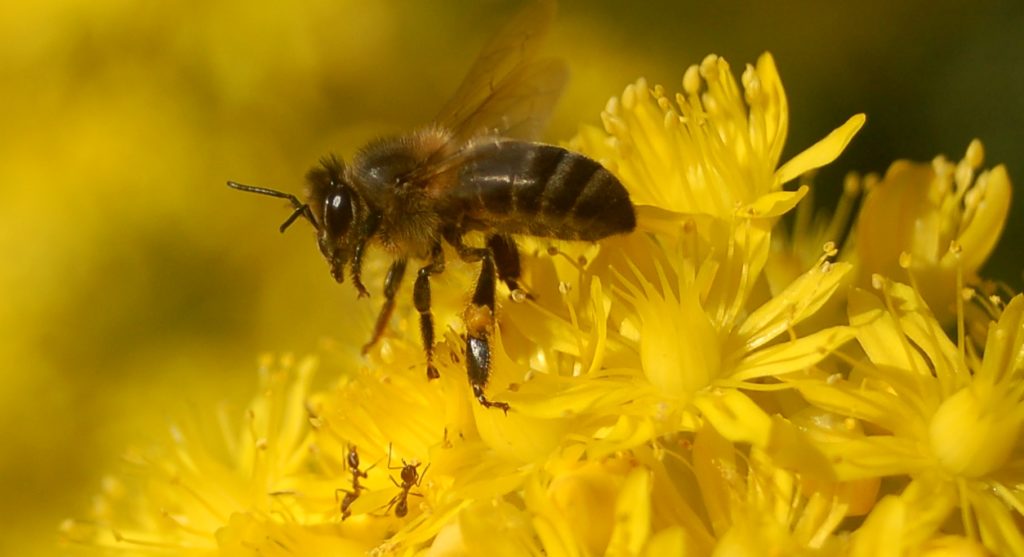
Beehive deliveries keep New Yorkers buzzing on rooftops, backyards
Bustling New York City may not seem a bee-friendly place, but its high-rise rooftops and tiny gardens are buzzing with honeymakers threatened by pesticides in rural areas.
About 2.4 million Italian honeybees waited in a white van to be taken to their new homes on a Friday this past April. It was parked near the Dakota Apartments by Central Park, where John Lennon’s widow Yoko Ono has lived since 1973.
“This is the first year that we’ve done this outside The Dakota,” said Andrew Coté, president of the New York City Beekeepers Association. “We heard that Yoko likes honey.” Coté, who founded Andrew’s Honey, drove up from Georgia to deliver the bees. The van held 200 wood and screen packages, each with about 12,000 bees. A steady stream of beekeepers lined up to pick up their 3 lbs packages which cost $159 or $205, depending on when they placed their order. “Bees are sold by weight, like cheese,” he said.
The number of urban beekeepers has grown quickly, with many hives now found on the rooftops of skyscrapers and office buildings, Cote said. New York legalized beekeeping in 2010 and has hundreds of registered hives, according to the Department of Health.
Bee populations are in sharp decline worldwide, partly because of excessive pesticides and chemicals in rural areas, and a lack of crop variety. New York does not have this problem, making it a healthy bee habitat, said Alan Markowitz, a Bronx resident who is a beekeeper at La Finca del Sur Community Garden.
“A third of what you put in your mouth needs a pollinator. And in the city, believe it or not, bees do well because there’s less pesticides generally,” said the former farmer. “Having a lot of variety is wonderful for bees.”
And in the UK …
A U.K. charity has launched an initiative to restore more than 370,000 acres of flower-packed habitats and create a national network of insect superhighways. B-Lines, a pollinator connectivity project by Buglife, has been years in the making, with successful pilots in several areas including Cardiff, Wales. Coordinators spent a decade mapping the best routes between fractured insect habitats, and with that information, they may now team up with residents, businesses, conservation groups, and local authorities to help bring back Britain’s wildflower meadows and make this network a reality. Pollinator insects, such as honeybees, bumblebees, and butterflies, play a vital role in maintaining a healthy ecosystem.
“Off the back of [the launch] we have had housebuilders ringing up asking how they can incorporate the network into housebuilding,” said Paul Hetherington, director of fundraising and communications at Buglife. “The things that have really hammered pollinators, and bugs in general, are habitat loss, fragmentation of habitat, loss of connectivity of habitat, climate change and pesticides – this deals with everything except pesticides.”
Euroweekly News
Buglife





